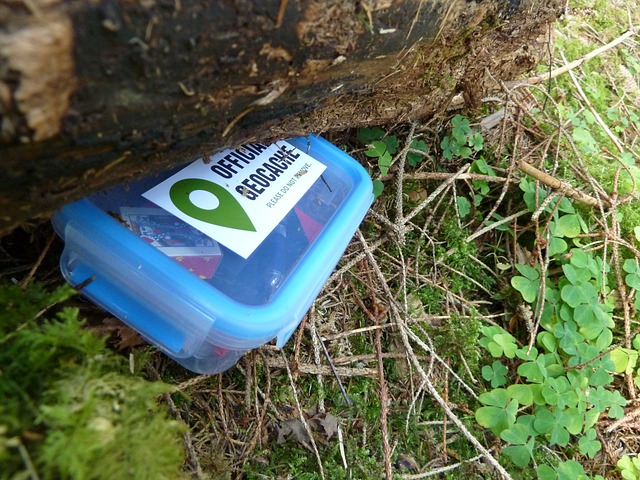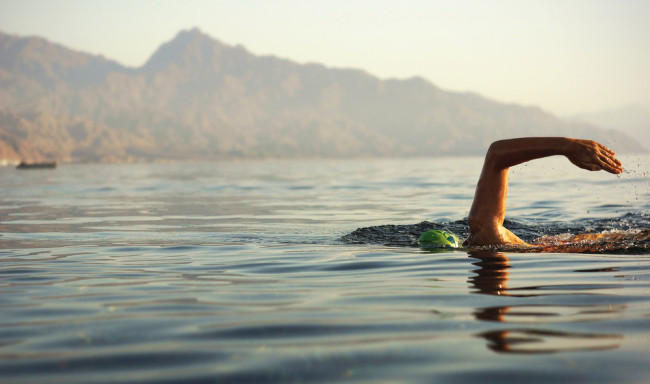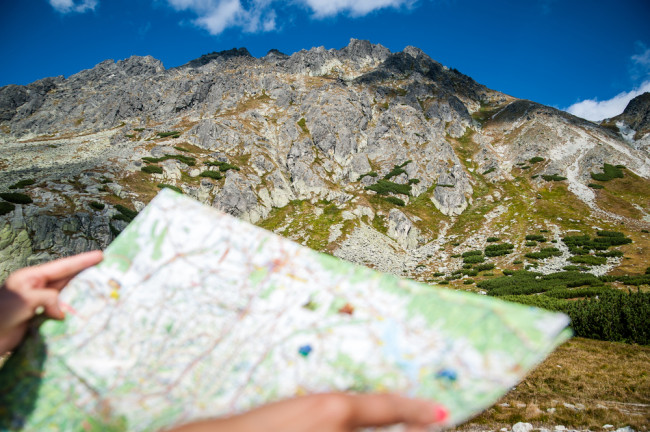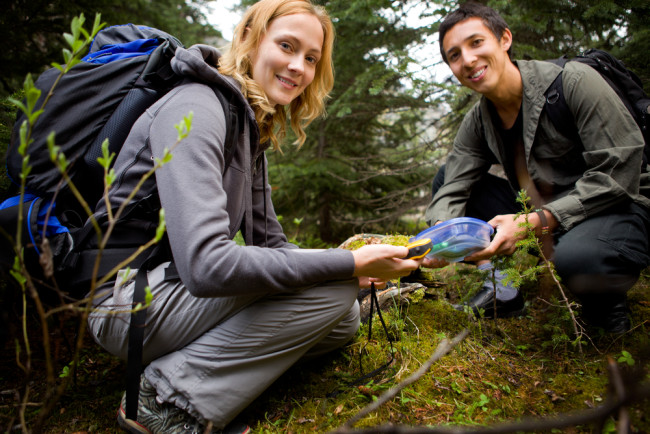
Many of you may already be familiar with the global phenomenon that is geocaching. After all, there are over 10 million registered geocachers around the world, with who knows how many non-registered on top of that.
And yet it still seems like somewhat of an unknown, eliciting puzzled looks when brought up in conversation with those outside of the geocaching fraternity.
Read more: Interview With Ordnance Survey - History & Future of OS Maps
Interested in finding out more? Let’s take a trip into the belly of the geocaching beast…
What is geocaching?
This seems like as good a place to start as any. Just what on earth is geocaching?
Geocaching is, basically, a hi-tech treasure hunt. Using GPS (either on your phone or specialist GPS device), you track down little hidden treasures called geocaches, or ‘caches if you’re feeling trendy.
The first geocache was hidden on 3rd May 2000 in Beavercreek, Oregon, and there are now an estimated 2.5 million caches hidden around 180 countries. There are around 70,000 caches in the UK alone.
What do these geocaches look like?
Good question. Traditionally, geocaches are waterproof containers (tupperware containers or ammunition boxes, for example), and inside them you’ll find a logbook for you to sign. You can also sign the online logbook to prove you’ve found it.
Some caches even contain ‘treasures’ or trinkets for trading. If you take take one of these treasures then you must leave something in return. It doesn’t have to be anything expensive; just a token for someone else to find.
It can be anything really - a novelty figurine, golf ball, pin badge, pack of cards, etc. You can’t leave food, sharp objects or anything offensive. This is a child-friendly hobby, remember.
Different types of geocache
As geocaching has evolved, as have the actual geocaches themselves, and there are now various different types, such as:
- Regular caches - these are the standard tupperware containers we just mentioned.
- Nano caches - these are tiny tubes with the logbook rolled up inside. These can be very difficult to find and you may need tweezers to get out whatever’s inside.
- Micro caches - a little bigger than nano caches but still pretty small. Again, tweezers may be needed.
- Camouflaged caches - these are sneakiest of the lot, designed to blend into their surroundings. People are becoming more and more inventive with their camouflage, disguising the caches as fake rocks, metal bolts and even fake dog poo!
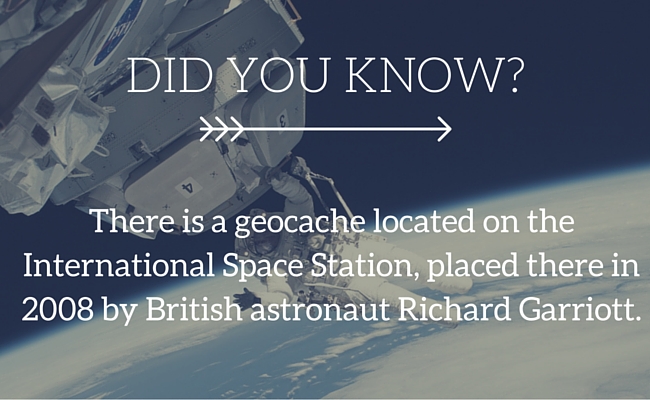
How do you find geocaches?
Using GPS-enabled apps on your smartphone or a specialist GPS device, you can download the coordinates of local geocaches and get cracking. There are various websites from which you can download coordinates, but geocaching.com is by far the most established and user-friendly.
You’d be surprised at just how many geocaches there are, and there’s a good chance you’ll find some local to you. And they’re not just out in the countryside. Many are hidden in city centres, so even if you’re doing a spot of shopping, you may be able to do a bit of geocaching in the process.
Read more: 5 Moan-Free Hikes For Kids In The UK
Most geocaches aren’t just left in plain sight, however. That’d be too easy. You have to go looking for them. They may be hidden under or behind something, although you should never have to do anything too risky in order to find them.
When downloading the coordinates, some people may have left photos or hints on how to find the caches, just to give you a helping hand.
What equipment do you need to go geocaching?
Not a huge amount, to be honest. The main thing you’ll need is some form of GPS. Now, this can be done either using your smartphone or through a specialist GPS device - Garmin are probably the best ones you can buy, although they can get a bit pricey, so it might be best sticking with your phone unless you get really serious about it.
However, we all know how terrible the battery life of smartphones can be, so you should do any downloading on the wi-fi at home, take some form of portable charger or battery pack with you, especially if you’re planning on being out for a while.
You will want to take a pen or pencil with you so you can jot something down in the logbooks, whilst you might also need a few ‘treasures’ if you plan on trading any you find in the caches.
If you’re doing some rural geocaching, then of course you’re going to need the right clothing, so a decent pair of walking boots and a waterproof jacket are advisable. Sales pitch over.
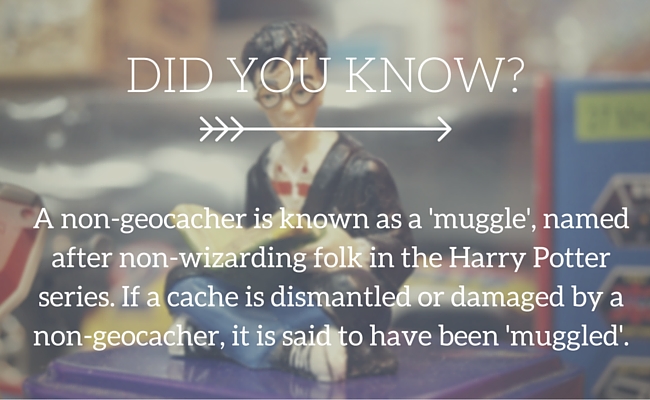
What is the best geocaching app?
As well as their website, Geocaching.com also has a couple of apps available that are well worth checking out. There’s a free version that gives you the basics you need to get started (with in-app purchases) and then a paid version that gives you access to all geocaches, as well as the ability to save offline lists, which is particularly handy if you’re out in the wilderness with a dodgy internet connection.
An alternative is the c:geo app, which might not be quite as neat looking but still has pretty much all the information you need. These are the two you should probably start with.
Can you go geocaching without GPS?
In theory, you can go geocaching without internet, a smartphone or GPS device, although it does make it a bit trickier. Lack of internet isn’t a massive issue as some apps let you save lists of geocaches offline, but they’ll still rely on the device’s GPS.
Read more: The Hiking Gear You Need To Survive The UK Weather
If you want to go really old-school, then you could check out the location of the caches at home and mark their location on a map.
Can you leave your own geocaches?
You can indeed. However, it can be a little on the complicated side. This guide will tell you everything you need to know, including how to register the location online and what to put inside it.
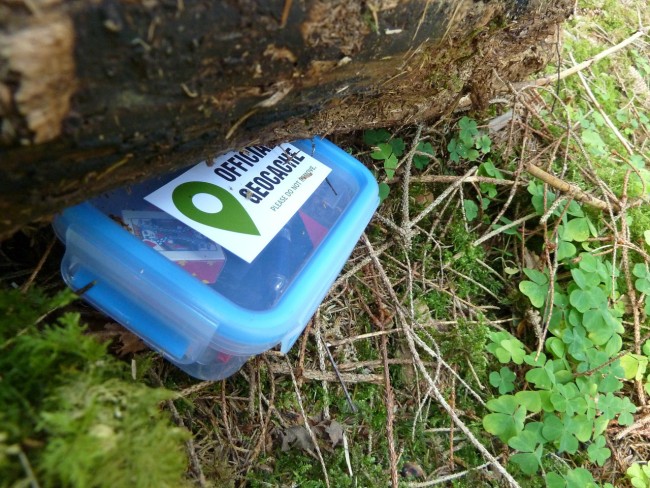
We had a quick chat with Antony Reid of the Geocaching Association of Great Britain about geocaching. Here’s what he had to say…
What is it that's so appealing about geocaching?
It's rambling with a purpose - a goal. It's using technology to get you out of the house and see stuff, find stuff, to walk or climb or just visit. It's secretive - you are 'in on a secret' and that's always fun.
What are the essentials you need to get started?
Do you have a smartphone? Then give it a go - download the free app, look for a local geocache, read the description and go. If you like it, consider getting more serious - log your finds online, look for different types of geocaches, check out the 'difficulty' or terrain' ratings and choose how you do it. You can buy more accurate GPS devices, too. Don't have a smartphone? Don't worry - use the online maps to find the cache's location and then use memory or a printer to go find it - that's what I did at first, but it's quite a challenge doing it that way...
Are there any basic rules beginners should follow?
Be smart - don't break anything, don't go where you shouldn't go, don't endanger yourself or others. So if the smartphone is saying jump off a cliff, don't do it... maybe the cache is at the bottom of the cliff?, or maybe the GPS accuracy is not quite right - it could be 3 metres away in the other tree, or behind the wall, or whatever. Be smart - look around, look behind you....
Also, be nice - if someone asks you what you are doing, be polite, be nice, explain.
But also be casual and discreet - geocaches are hidden, so don't spoil it for other cachers by leaving it on show, or drawing too much attention to it.
If you take something from the cache - a swap - leave something that's just as nice. Sign the log book and leave that behind, too!
Are there any places in the UK particularly great for geocaching?
Thousands of places! National Parks? yes. Ancient castles? yes. National Trust properties? yes. Your local church? Probably, yes. An interesting but hidden feature, a lovely view, a stream you never knew was there, an island in a lake, a cave system, the top of an old water tower, yes yes yes!
There's more info in our GAGB Seeker magazine, too.
What do the GAGB do?
The role of The Geocaching Association of Great Britain is to help geocachers, land owners, the wider media, and other organisations gain an understanding of what geocaching is and how it works. Britain has a unique context for geocaching - with our footpaths, "right to roam", and unusual land ownership arrangements - and GAGB is here to help resolve difficulties, promote good will, and encourage geocaching in all its forms.
Are you a geocacher? If so, let us know why your favourite thing about it in the comments below or give us a shout on Twitter or Facebook.






